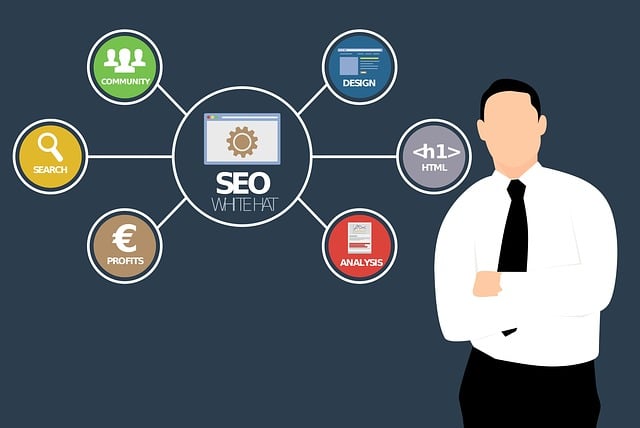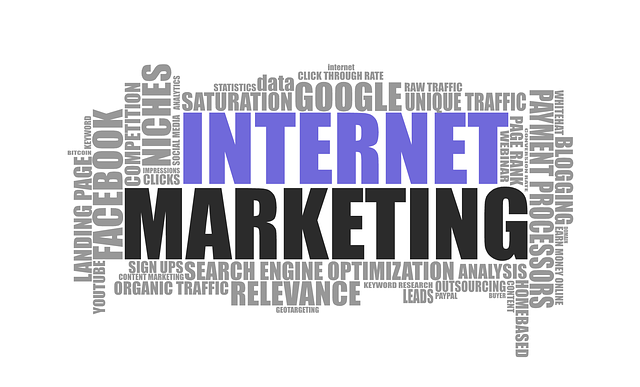Adopting AI-powered systems for auto shop marketing is crucial in today's digital era. These systems leverage data analysis and personalized insights to target customers, boost sales, and build brand loyalty. By automating tasks like inventory management and appointment scheduling, AI enhances efficiency and productivity while fostering stronger client relationships through tailored services. Ultimately, embracing AI integration is key to staying competitive, meeting evolving consumer demands, and driving sustainable growth in the automotive sector.
In the rapidly evolving automotive landscape, Artificial Intelligence (AI) is no longer a futuristic concept but an essential tool for businesses to stay competitive. This article explores effective strategies for integrating AI into auto businesses, focusing on key areas such as understanding AI’s role in operations, implementing AI-powered marketing systems, and enhancing efficiency and customer satisfaction. By leveraging AI technologies, auto shops can revolutionize their marketing efforts, streamline processes, and deliver exceptional customer experiences.
- Understanding AI Integration in Auto Businesses
- Implementing AI-Powered Marketing Systems
- Maximizing Efficiency and Customer Satisfaction with AI
Understanding AI Integration in Auto Businesses

In today’s digital era, AI integration is no longer a futuristic concept but an essential strategy for auto businesses to thrive. AI-powered systems offer immense potential in transforming various aspects of automotive operations, from enhancing customer experiences to optimizing internal processes. By implementing AI in marketing strategies, auto shops can leverage advanced analytics and personalized insights to target the right customers with tailored offers, increasing sales and fostering brand loyalty.
AI algorithms can analyze vast amounts of data, such as customer behavior patterns, market trends, and competitor analysis, to provide valuable information. This enables auto businesses to make data-driven decisions, improve inventory management, and develop targeted marketing campaigns using AI-powered systems for auto shop marketing. Ultimately, embracing AI integration allows auto shops to stay competitive, adapt to changing consumer demands, and drive sustainable growth in a rapidly evolving automotive landscape.
Implementing AI-Powered Marketing Systems

Auto businesses can significantly enhance their marketing strategies by adopting AI-powered systems. These technologies offer a range of benefits, from personalized customer engagement to data-driven insights. By implementing AI in marketing, auto shops can create dynamic and tailored campaigns that resonate with their target audience. For instance, AI algorithms can analyze customer behavior and preferences to deliver relevant product recommendations, increasing the chances of conversion.
Furthermore, AI-powered chatbots and virtual assistants provide 24/7 support, instantly addressing customer queries and improving overall satisfaction. These systems can handle basic inquiries, book appointments, and even guide customers through the purchasing process, streamlining operations and allowing human staff to focus on more complex tasks. This integration of AI into marketing not only boosts efficiency but also ensures a competitive edge in the auto industry.
Maximizing Efficiency and Customer Satisfaction with AI

In today’s digital era, auto businesses are leveraging AI-powered systems for auto shop marketing to maximize efficiency and customer satisfaction. These intelligent solutions streamline operations by automating repetitive tasks such as inventory management, scheduling appointments, and providing personalized recommendations to customers. By optimizing these processes, auto shops can reduce human error, enhance productivity, and free up valuable time for staff to focus on more complex tasks that require human touch and expertise.
Furthermore, AI enhances customer experiences through data-driven insights and tailored interactions. AI algorithms can analyze customer behavior, preferences, and feedback to offer customized services and products. This level of personalization not only improves customer satisfaction but also fosters stronger relationships between auto businesses and their clientele. As a result, AI-driven marketing strategies enable auto shops to stay competitive, adapt to evolving customer demands, and ultimately drive growth in an increasingly digital landscape.
The integration of AI into auto businesses presents a transformative opportunity. By implementing AI-powered systems for auto shop marketing, businesses can enhance customer engagement and satisfaction while maximizing operational efficiency. As seen in the previous sections, these strategies range from understanding AI’s role to leveraging its power in marketing and service delivery. Embracing AI is not just about staying competitive; it’s a step towards revolutionizing the automotive industry, ensuring long-term success in a rapidly evolving market.
